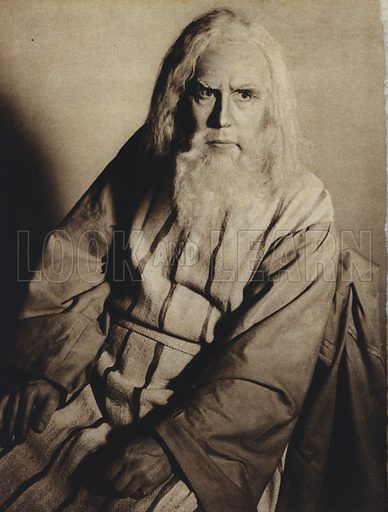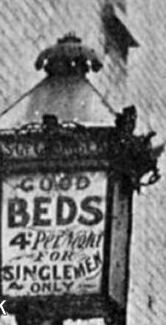THE DRESSER- July, 2026
- Kevin Shinnick

- Oct 17, 2025
- 6 min read
It's official. Licensing has been completed with Concord Theatricals (and kudos to the very patient staff with answering my multitude of questions ), and performance space is set at the M.U.C.C.C. here in Rochester, NY.
THE DRESSER by Ronald Harwood will be TETCNY's next show .
THE DRESSER by Ronald Harwood is a tragicomedy about a devoted personal assistant, or “dresser”, named Norman, who, during the W.W. II bombings of the U.K.
Norman struggles to keep his aging, increasingly senile actor / employer, “Sir” focused as they prepare to go on stage with KING LEAR.
The story unfolds backstage in a provincial theatre during the height of the Blitz of 1942, exploring the complexities and sacrifices of backstage life, the relationships, and the need to create, with the cast and crew doing all they can to perform even under the threats of war.
The play mirrors the relationship of King Lear, culminating in the desperate but inspired performance by the actor-manager.
Harwood’s play is based upon his own experiences as a dresser and assistant for the Shakespearean actor Sir Donald Wolfit, whom he served for six years ,from 1953-1958. Ronald Harwood later wrote the 1971 biography ," SIR DONALD WOLFIT,O.B.E.,HIS LIFE & WORK IN THE UNFASHIONABLE THEATRE "(London, Secker, & Warburg).
Wolfit had written his autobiography FIRST INTERVAL (Makowski Books) in 1954. Sadly , I have not yet had a chance to read his book.
Harwood repeatedly stated that while the play was inspired by his work with Wolfit, it is a work of fiction inspired by his knowledge and experiences with the actor .
The play is instead a tribute to a by-gone era of actor-managers ,and explores the intense , dependent relationship between a star & his dresser, who become bound together by a mutual need for each other.
The actor-manager system was the dominant model of the 19th Century theatre system, wherein the star would choose the plays, often taking the leading roles, directing, and managing the company’s operations.
Some of the more successful actor managers were David Garrick, Sir Herbert Beerbohm Tree, William Charles Macready, and Sir Henry Irving.
The life of a touring company was a difficult one. Often, there would be several plays being performed each week in repertory ,and often new plays rehearsed when possible during the day. Poor to low wages , no job security or health insurance , travelling from one town to another was exhausting emotionally and physically. Certain areas might have lodgings that specialized in renting rooms and feeding performers, though that was mostly in the larger cities. Often, the cheapest digs (rooms) would be sought, and the meals would hopefully included .
During the war, there were more problems, such as interrupted travel plans, with towns taking down signs to avoid letting the enemy know their whereabouts , but also making life difficult for other travelers. Missing a train connection might mean not making a booking on time, which might result in the ENTIRE planned stay being cancelled, and /or penalties applied and funds garnished.
The actor manager ,or if lucky enough, their agent ,would be calling ahead between train stops to ensure that their venues were still open , or if a booking was available .
The war also meant that supplies became less easy to obtain, resulting in often threadbare costumes and scenery. Then too, an actor might also be called up to serve during WW II, and often untested newcomers and/or much older performers might be drawn into the tours.
Add all this to the regular problems of running a theatre company, and one can imagine the strain experienced by those touring groups.

The actor-manager system began to wane in the early to mid-1950s, due to changes in society and theatrical shifts in responsibilities.
Sir Donald Wolfit (1902-1968) was a contemporary of Sir John Gielgud and Sir Lawrence Olivier. Wolfit (born Woolfitt to a middle-class family),unlike those two , preferred to spend most of his energy taking Shakespeare throughout the United Kingdom. He began his acting career in 1920, later making his West End debut in 1924. By 1934, he had raised funds to become his own company manager.
With the outbreak of WWII, Wolfit continued to tour the provinces to bring affordable theatre to the people up and down the United Kingdom. In 1940, the company were presenting scenes from Shakespeare at the Strand Theatre when the Nazis bombed the theatre. It destroyed Wolfit’s scenery and costumes, but they continued to tour. This incident may also have been one of the inspirations for THE DRESSER.
Wolfit was a strict actor manager, and was often disliked by his performers, who had contracts that locked them into “play as cast” roles without expected financial renumeration. A famous story tells how one actor kept asking for better roles and pay, only to be brushed off by Wolfit. The frustrated actor went out and auditioned for another company and was given more of what he desired. His final performance for Wolfit’s company was a small role in MACBETH. In the play, the young actor was supposed to tell Wolfit that the Queen was dead. However, that night, the young man stepped upon the stage and said: “My Lord- THE QUEEN IS MUCH BETTER, AND EVEN NOW AWAITS”, leaving the stage and Wolfit to react to this unexpected comment.
Still, Wolfit gave many beginners their chances to get into the world of theatre. For example, one of his company members was Harold Pinter, who became better known as a Nobel Prize winning playwright (BETRAYAL,1978).
Wolfit received a C.B.E. in 1950. He retired in 1957 as an actor manager, but after receiving a knighthood that year, he took final tour under his own management. 1953-58 years are when Harwood functioned as Wolfit’s dresser. Wolfit’s final stage appearance was in the musical ROBERT & ELIZABETH in 1967-8, passing away in February,1968 at age 68.
Wolfit appeared in films sporadically between 1931 to 1968, appearing in such films as LAWRENCE OF ARABIA (Columbia,1962).
Ronald Harwood (1934-2020) wrote more than twenty-one stage plays and ten books and created more than sixteen screen plays, including his adaptation of THE DRESSER (Columbia,1983). He won an Academy Award for his screen adaptation for THE PIANIST (Focus,2002).
THE DRESSER was first presented on 6 March 1980 at the Royal Exchange, Manchester and transferred to the Queen's Theatre in London on 30 April 1980, with Freddie Jones as "Sir" and Tom Courtenay as Norman. The play was nominated for Best Play at the Society of West End Theatre Awards (now known as the Laurence Olivier Awards) for 1980. In 2016, a production directed by Sean Foley and starring Ken Stott and Reece Shearsmith played theatres including the Duke of York's Theatre in London's West End.

The play opened at the Brooks Atkinson Theatre on 9 November 1981 and ran for 200 performances, with Tom Courtenay reprising his performance as Norman and Paul Rogers as "Sir", union rules preventing Freddie Jones reprising the role. The play was nominated for the 1982 Tony Award for Best Play, Best Actor in a Play (Tom Courtenay) and the Drama Desk Award for Outstanding Actor in a Play (Paul Rogers).

The play was adapted as a 1983 film of the same title, with a screenplay by Harwood. The film was directed by Peter Yates and produced by Yates with Ronald Harwood; and starred Albert Finney as "Sir" and Tom Courtenay as Norman, with Zena Walker as "Her Ladyship", Eileen Atkins as Madge and Edward Fox as Oxenby. Finney and Courtenay were both nominated for Academy Awards, BAFTA Awards and Golden Globe Awards for their performances, with Courtenay winning the Golden Globe Award for Best Actor – Motion Picture Drama in a tie with Robert Duvall in Tender Mercies.
A television version for the BBC was shown in the UK on 31 October 2015. Richard Eyre directed Anthony Hopkins as "Sir" and Ian McKellen as Norman, with Emily Watson as "Her Ladyship", Sarah Lancashire as Madge and Edward Fox as Thornton. It is available to view at present on Netflix .
A radio adaptation for BBC Radio 4 was broadcast on 11 December 1993. It was adapted and directed by David Blount. Freddie Jones played Sir and Michael Palin played Norman.
We hope to live up to the history of this story, and be stimulating entertainment for the Rochester, New York area.
Our production will be going up in July,2026 for six performances at the Multi-Use Community Cultural Center, 142 Atlantic Ave, Rochester, NY 14607. Check out their website for information as to when tickets become available for purchase. https://www.muccc.org
Also, make sure to follow our blog here for the latest updates regarding crew, casting, and the progress of the piece.
With Gratitude .
-Kevin G Shinnick
Director
THE DRESSER
If you would like to support our efforts, you can make a SECURE donation to THE ENSEMBLE THEATRE COMPANY of NEW YORK (TETCNY) via FRACTURED ATLAS. https://fundraising.fracturedatlas.org/the-ensemble-theatre-company-of-new-york
What is Fractured Atlas ? https://www.fracturedatlas.org/what-we-do

























Comments